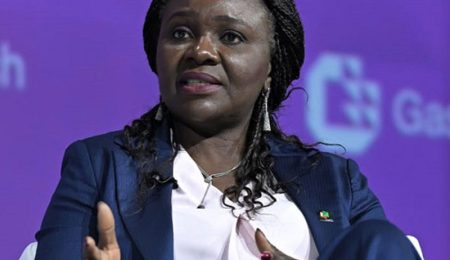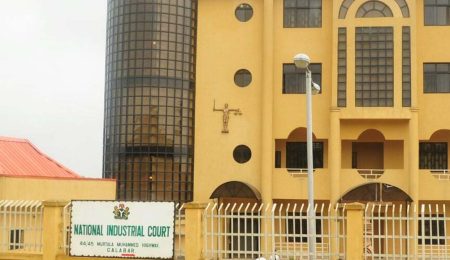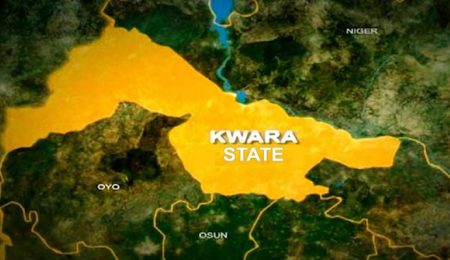The federal government admitted on Thursday that it posted a significant shortfall in oil revenue in the first half of the year, despite surpassing the gross receipts recorded in the corresponding period of 2024.
Minister of Finance and Coordinating Minister of the Economy, Mr. Wale Edun, made the disclosure in Abuja at a press briefing.
Edun stated that while oil price benchmark in the 2025 budget was $75 per barrel, average sales for the half year was $67 per barrel.
He also stated that average oil production per day was $1.67 million barrels against the budget projection of 2.06 million barrels per day.
Giving some updates on major sectors, the minister said, “In the oil and gas sector, average production in the first half of 2025 was 1.67 million barrels per day.
“Significantly, that is below the 2.06 million barrels budgeted, and that is of note.
“The average crude price also in the budget was put at $75 per barrel; we’ve had an average price of $67 per barrel. We have maintained compliance with the OPEC quota, and as you can see from the figures I’ve given, there has been a revenue.”
He stated that in response to the shortfall, the federal government prioritised spending on sectors that directly impacted citizens and supported growth ambitions.
Edun disclosed that despite the shortfall in oil revenue, gross revenue stood at 37.4 per cent in the first half of 2025, surpassing the performance recorded in the same period of 2024.
This, according him, signalled improved fiscal discipline and prudent resource management.
The minister explained that the states and the Federal Capital Territory (FCT) now operated in a more robust fiscal space due to increased allocations from the Federation Account and other releases due to them.
Edun said the states and FCT combined fiscal balance grew from N2.8 trillion in 2023 to N7.1 trillion in 2025, helping them to support capital projects in education, health, and other infrastructure.
Giving further insight into what states had been receiving, he said, “I would call it a build-up of funds that were due that hadn’t been paid to them, and under the law, under the regulations, have been made available to the states. And this, as we have said, has increased their surpluses such that the states in the first half of this year enjoyed budget surpluses of 3.1 per cent of GDP, which was way up, almost double previously the situation that they had with about 1.8 per cent of GDP surplus.
“So, in a nutshell, the funding to the states from the Federation Account has increased, which is what you would expect from the major measures that were taken to restore fiscal viability by removing a range of subsidies that were costing five per cent of GDP.
“That now flows through to the Federation Account and is reflected into higher payments to the states. Not just that, but adhering to the rule of law and the sanctity of contracts, previously owed funds were now being systematically made available.”
On the power sector, the minister stated that there had been no national grid collapse in 2025, for the first time in years.
He also stated that peak generation had exceeded 5,000 megawatts, even as steps were underway to liquidate the N4 trillion legacy debts and implement a sustainable framework under the Electricity Act.
As part of overall measures to end electricity subsidies, Edun said the federal government might introduce a pay-as-you-go model of payment for electricity consumption.
Providing further details on the activities of government, Edun stated that the macroeconomic ecosystem had been stable, attributing the improved fiscal outlook to bold reforms, including the standing out of the “Ways and Means” overdraft funding by the Central Bank of Nigeria (CBN).
“There have been no debits to ways and means since early in this administration,” he said. “Following GDP rebasing, Nigeria’s debt-to-GDP ratio now stands at 38.8 per cent, down from 52.1 per cent, providing greater fiscal headroom,” he added.
Stating that the government was not in default of any obligation, he stated that over N2 trillion was recently paid to contractors to clear outstanding capital budget obligations from 2024, with no pending liabilities outside the formal payment process.
He said the focus was on the timely release of funds for 2025 capital projects.
The minister added that part of the government’s inclusive growth strategy was to strengthen state finances.
The improved cash flow to subnationals, he stressed, now enabled them to run surpluses and channel more spending into capital investments.
“From an economic classification standpoint, the increase in state spending has mainly gone to capital expenditure, which is exactly the type of growth we are aiming for,” he explained.
The minister also confirmed that repayments of past deductions from the Federation Account, owed to states, were being made regularly, further boosting their fiscal capacity.
Ndubuisi Francis
Follow us on:


